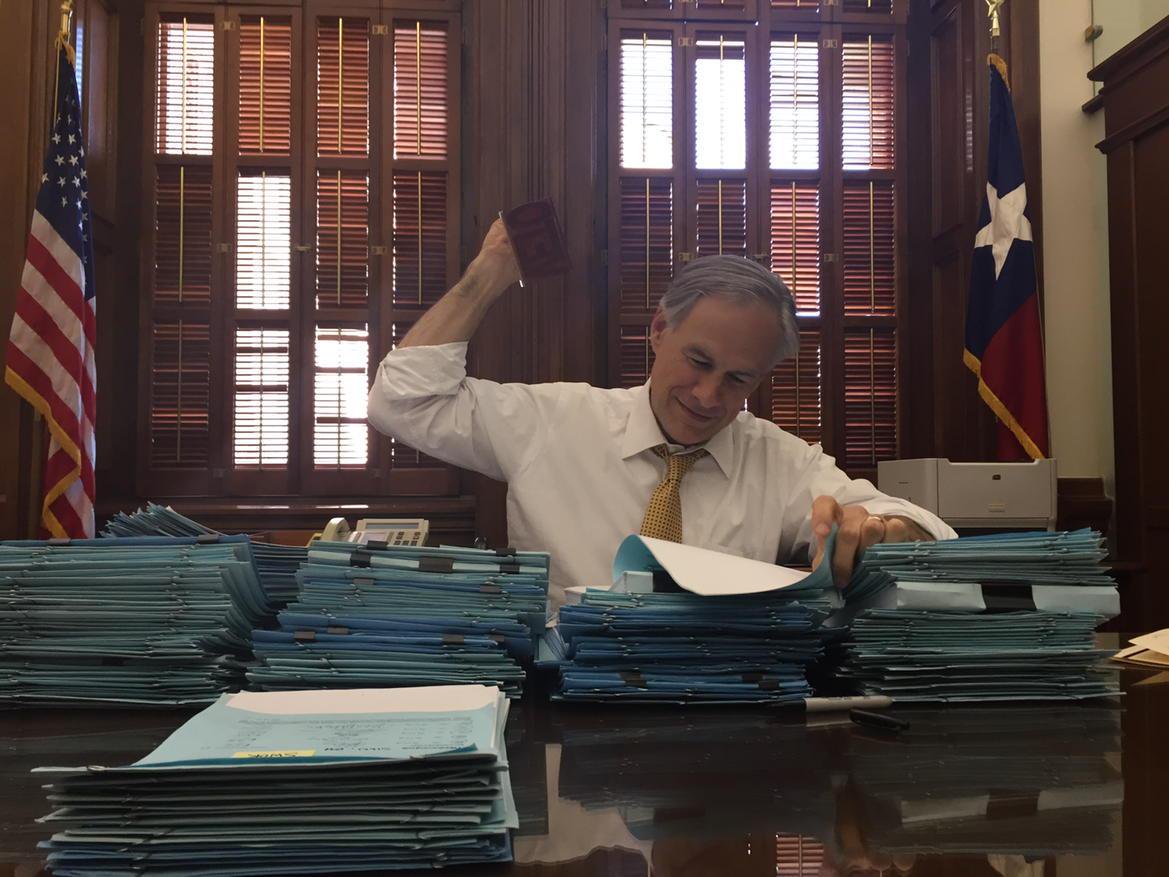
This legislative session the Texas House and Senate passed 4,581 bills. Governor Abbott signed 1,323, but still managed to kill more than 50 bills that passed both the house and the senate. For each veto he explained his reasoning, calling most of them “good bills gone bad.” That was certainly true of SB 1804 by Sen. Lois Kolkhorst.
When introduced, Kolkhorst’s bill was quick to gain bipartisan support in both the House and the Senate. Her bill would have strengthened protections for survivors of domestic violence and the community through the creation of a statewide data repository for offenders’ bond conditions. This good bill would have brought peace of mind and tangible safety measures for survivors, but one Democrat in the House viewed it as an opportunity to sneak in an amendment giving industry a handout.
The bill passed the Senate 31-0 and the House 142-0, but not before Rep. Poncho Nevarez of Eagle Pass added an amendment on the bill’s third reading, declaring that it “offers some economic competitive incentives.” No representatives asked for a reading of the amendment and Sen. Kolkhorst did not request a conference committee fearing that the bill could die all together.
Unfortunately, the “economic incentives” promised by Nevarez were not completely unrelated to SB 1804. They were, in fact, actually a subsidy for a company storing low-level radioactive waste in West Texas.
The incentives would have allowed radioactive waste company, Waste Control Specialists (WCS), to hold off on paying nearly $4.2 million in fees and surcharges on radioactive waste disposal until 2021. This money would be set aside for use if anything were to go wrong at their site in Andrews County, Texas. According to WCS’s president, the postponing of the fees would allow the company to be more competitive. The company that owns the waste site has faced opposition from nearby residents, and even plans to build an “interim” high-level radioactive waste storage site. The new site would handle 40,000 tons of high-level radioactive waste and put water sources, security, and the health and safety of residents on any of those transportation routes, as well as the residents in Andrews County, at risk.
Without the fees, the state could be on the hook for any incidents at the current low-level radioactive waste site.
After the amendment was successfully added to SB 1804, many believed it would be signed into law. Gov. Greg Abbott vetoed the bill stating that “the bill author’s good idea about domestic violence has been dragged down by a bad idea about radioactive waste.”
Don’t let Abbott’s SB 1804 veto make you think the Governor is now suddenly pro-environment. He also killed a bill that could have provided necessary and helpful insight into the use of green stormwater infrastructure. (Oh, and don’t forget all the good environmental bills he vetoed last session… And the bad environmental bills he’s signed over the years.)
HB 1059 was introduced by Rep. Eddie Lucio III. It would have created a biennial report on stormwater infrastructure and the use of green stormwater infrastructure in cities prone to flooding.
Green stormwater infrastructure (GSI) are systems that have a low impact in areas of development by mimicking the natural processes that storm runoff would go through in an undeveloped area. GSI is able to manage stormwater, protect water quality and habitats, and curb runoff pollution from dirty streets.
A study on these systems would allow cities in Texas to approach development with sound science, allowing them to grow and adapt with growth in a way that reduces harmful impact on the environment.
Unfortunately, after passing both the House and the Senate, Gov. Abbott deemed the bill “redundant and unnecessary” relying on cities and counties already using GSI to lead the way.
Texas is ready for bold legislation that will reduce our impact on the environment and safeguard the health of everyone. Texans need legislators that will act in their best interest and not the interests of polluting industries. While Governor Abbott helped deal a setback to nuclear waste development in Texas, his veto of HB 1059 shows that he still has a long way to go in understanding the scope of environmental issues facing Texas.